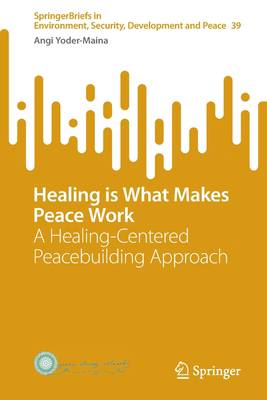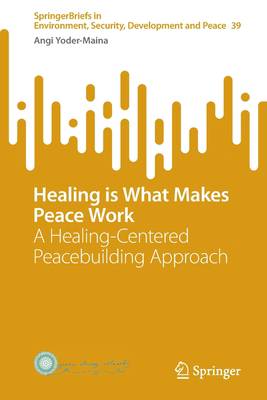
- Afhalen na 1 uur in een winkel met voorraad
- Gratis thuislevering in België vanaf € 30
- Ruim aanbod met 7 miljoen producten
- Afhalen na 1 uur in een winkel met voorraad
- Gratis thuislevering in België vanaf € 30
- Ruim aanbod met 7 miljoen producten
Omschrijving
The book goes beyond mental health and psychosocial support (MHPSS) to a holistic approach centered on healing. The book lays at the intersection of peacebuilding, global mental health, and development. In many parts of the world, entire generations live in chronic violence--just surviving. The exposure to violence has long-lasting effects which are not well accounted for in conflict analysis, stabilization efforts, peacebuilding, and governance initiatives. Extreme exposure to violence, abuse, neglect, and marginalization negatively affects levels of resilience and the ability of affecting the transition from violence to peace. A healing-centered peacebuilding approach requires fundamental changes in how systems are designed, organizations function, and practitioners engage with people, their communities, and their institutions. Key elements of the practice-based approach included inclusion, customization and contextualization, breaking cycles of violence, systems thinking, and trauma-informed tools. The approach considers emotional distress to be a critical variable in violent conflict and instability. Trauma is not only a consequence of violence, but also a cause of instability.
Specificaties
Betrokkenen
- Auteur(s):
- Uitgeverij:
Inhoud
- Aantal bladzijden:
- 124
- Taal:
- Engels
- Reeks:
- Reeksnummer:
- nr. 39
Eigenschappen
- Productcode (EAN):
- 9783031052507
- Verschijningsdatum:
- 14/09/2022
- Uitvoering:
- Paperback
- Formaat:
- Trade paperback (VS)
- Afmetingen:
- 156 mm x 234 mm
- Gewicht:
- 204 g

Alleen bij Standaard Boekhandel
Beoordelingen
We publiceren alleen reviews die voldoen aan de voorwaarden voor reviews. Bekijk onze voorwaarden voor reviews.











